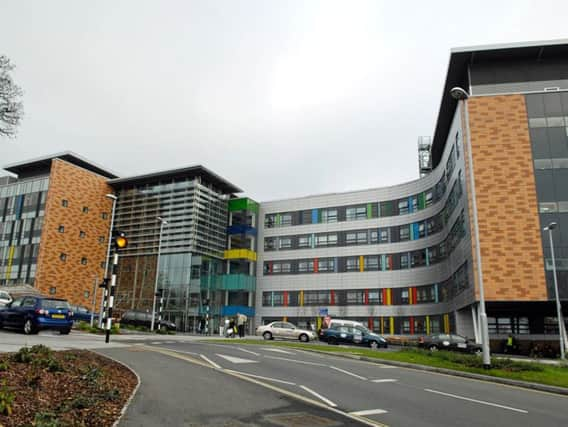Portsmouth council's QA Hospital bus lane camera nets £210,900 in fines


In the last five months the camera netted the cash via 3,500 penalty notices issued to drivers, the BBC reported.
People are issued with a £60 fine, which is reduced to £30 if paid promptly.
Advertisement
Hide AdAdvertisement
Hide AdAs reported, angry drivers say the signs are not clear enough.
The city council said there is not a problem with the sign.
Portsmouth North MP Penny Mordaunt told the BBC: 'These things tend to happen rather by accident than by design.
'Why the council should be concerned is that clearly people have these traffic management things in pace to stop either dangerous or anti-social driving.
'And if you're getting a load of fines still it's a clear indication whatever you're doing to stop that isn't working.'
Advertisement
Hide AdAdvertisement
Hide AdShe added: 'I think it would be a good idea as a matter of course that where places are delivering very large amount of fines in the city that they are automatically reviewed by the cabinet member or the council's audit committee.
'This is also about road safety as well as people being fined.'
But Councillor Jim Fleming, cabinet member for transport at the council, said if anything the signs were 'overkill' and that they had been looked at by an independent assessor.
He told The News: 'It's certainly not a case that the signs can't be seen by people. It's been a bus route for six years.
Advertisement
Hide AdAdvertisement
Hide Ad'People were using the hospital as a rat-run, mainly a the drop-off place for ambulances that's why the decision was made to put a bus lane camera in the gate, it's to stop people clogging up the bus lane.
'We even had an independent person go and have a look, he said "are you sure you need that many?".
'Ultimately it can only be people who are using that particular gate as a rat run and it's just causing additional congestion.'
But he added that people who receive fines, and who have compassionate grounds, will be listened to.
'People who have made representations on compassionate grounds, for whatever reasons, have been looked at sympathetically,' he said.
'However, those on their way to and fro from work are not.'